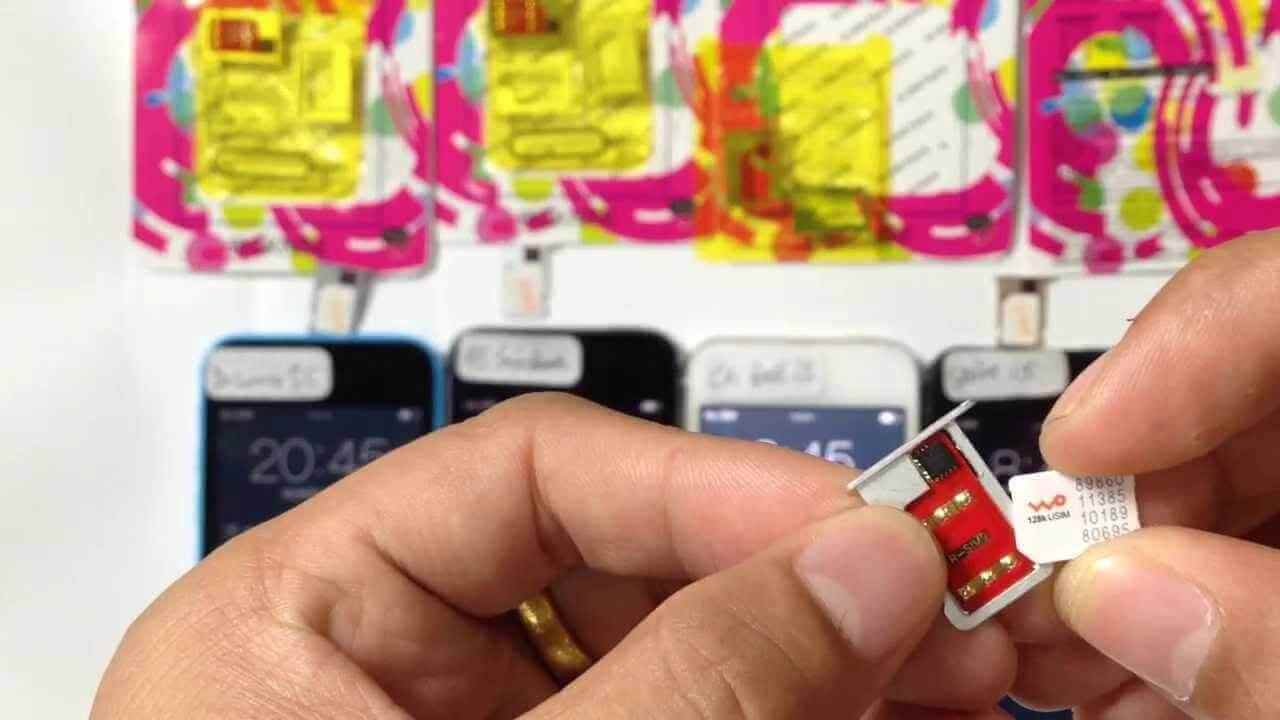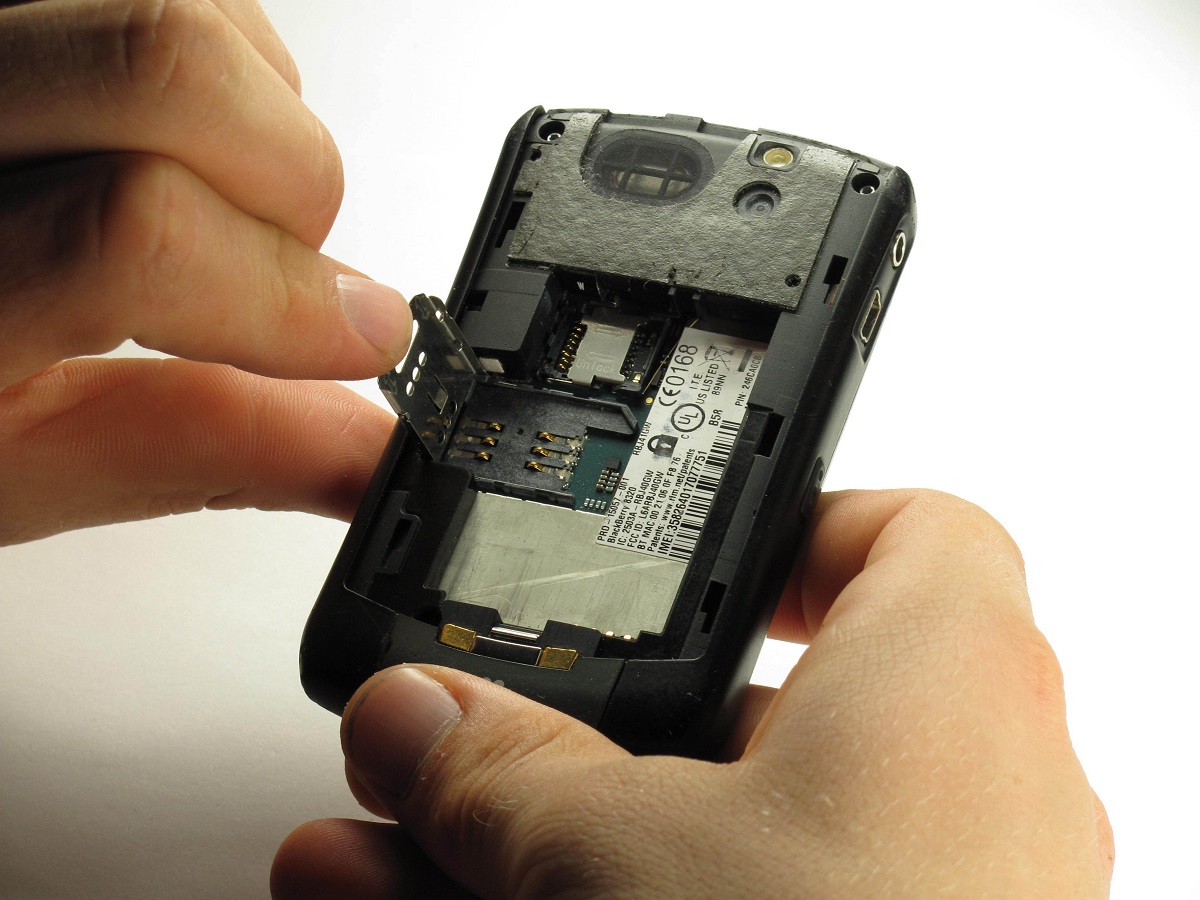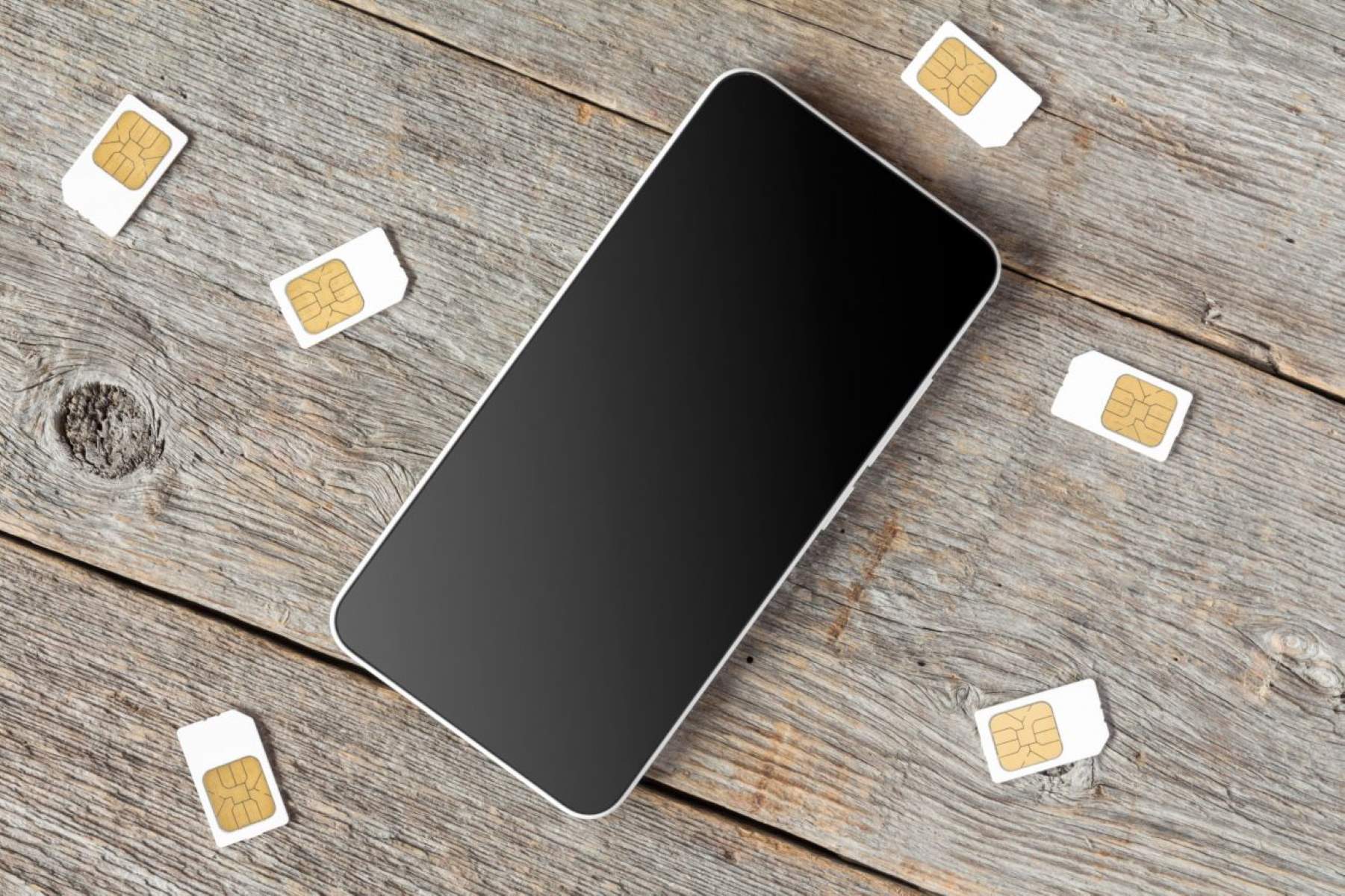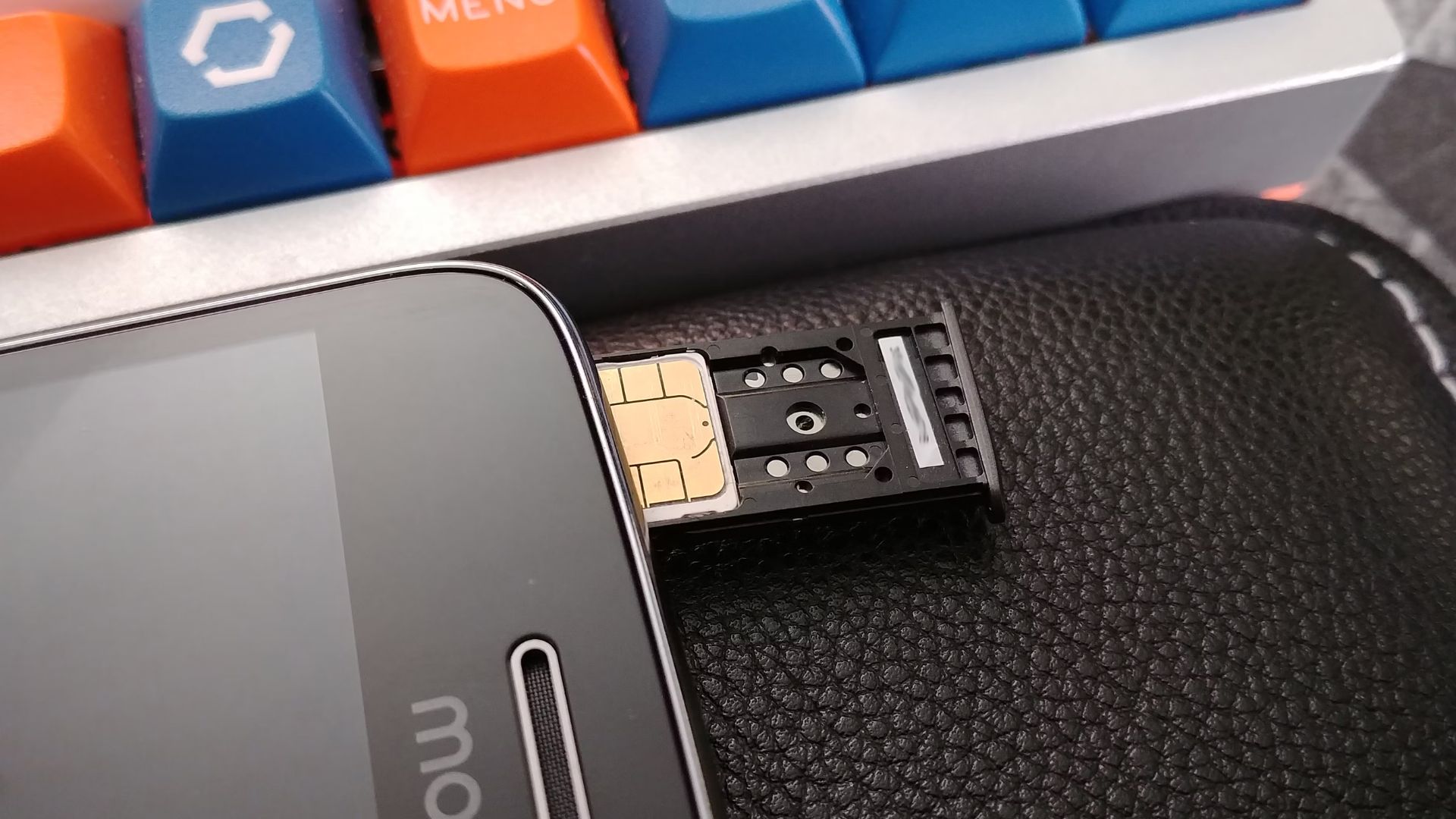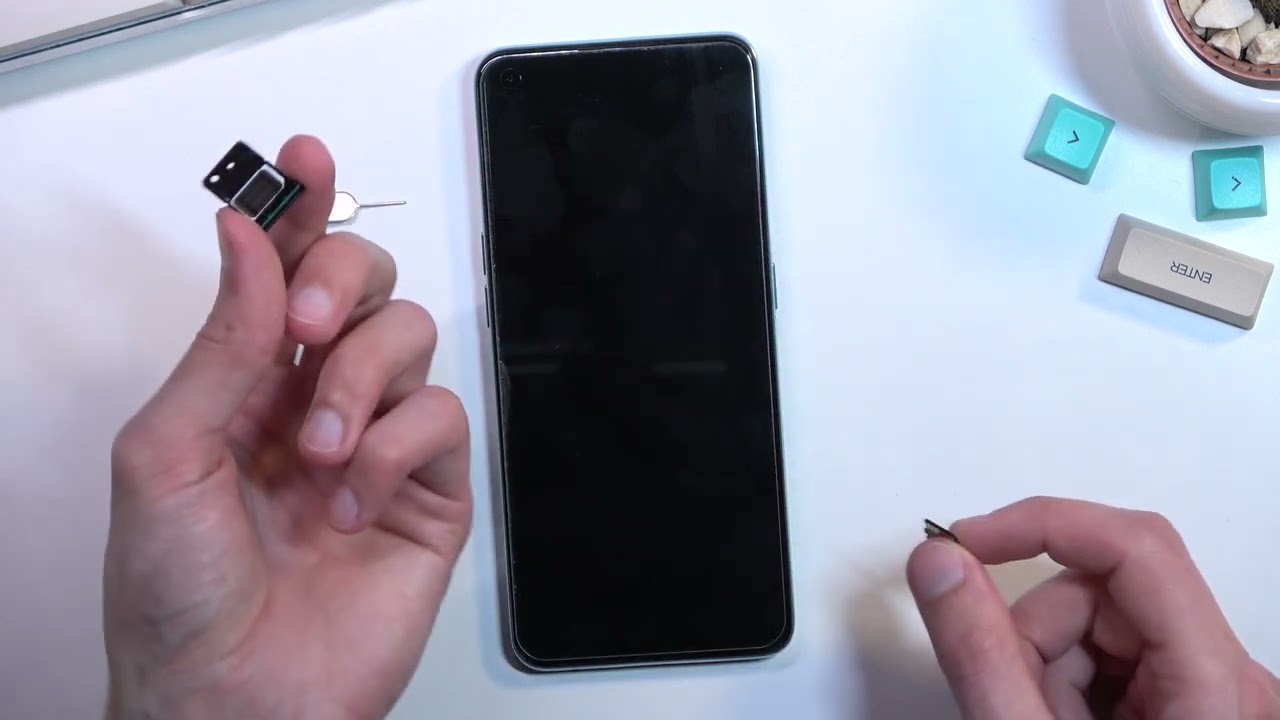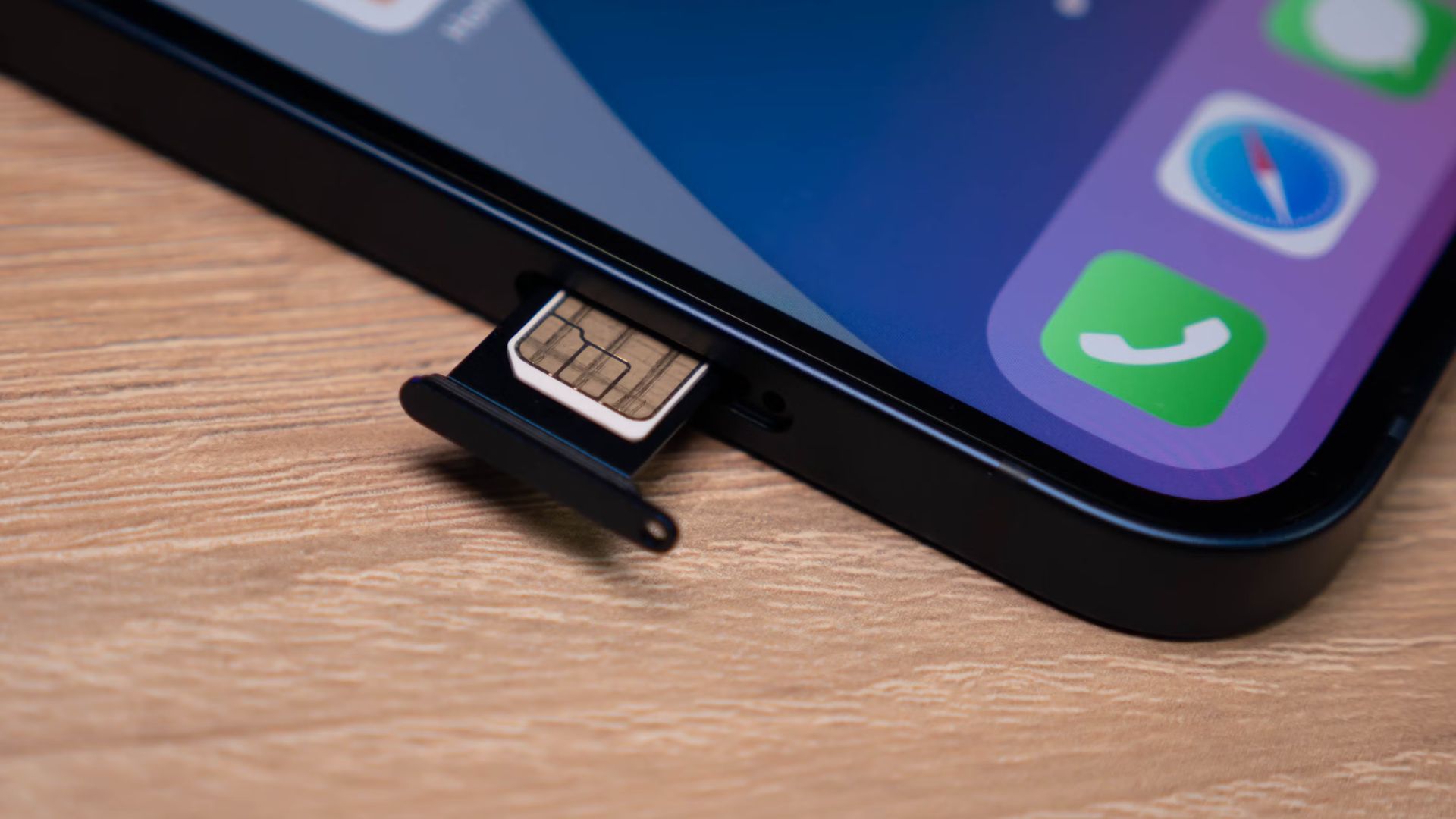Introduction
In this digital age, our lives are intricately woven into our mobile devices. These compact gadgets have become our personal assistants, holding a wealth of valuable information ranging from contact details to text messages and call logs. At the heart of this functionality lies the Subscriber Identity Module (SIM) card, a small but powerful component that serves as the linchpin connecting our devices to the cellular network.
The SIM card, often overlooked in its significance, plays a pivotal role in enabling communication through our mobile devices. It not only stores crucial information related to our mobile subscriptions but also acts as an authentication token, allowing us to access the network and utilize various services. As such, the data stored on a SIM card can offer profound insights into our communication patterns and network activities.
In this article, we will delve into the realm of SIM card data extraction, exploring the tools and methods available for accessing and retrieving information from these tiny yet potent cards. Whether you are a curious individual seeking to understand the intricacies of your mobile communication or a professional in the realm of digital forensics, the ability to extract information from a SIM card can provide valuable insights and unlock a trove of data.
Understanding the inner workings of a SIM card and the process of extracting its data can empower individuals and professionals alike to harness the potential of this often overlooked source of information. By uncovering the methods and tools for accessing SIM card data, we aim to shed light on the significance of this process and the myriad possibilities it presents.
Join us on this journey as we unravel the mysteries held within the confines of the SIM card, exploring the reasons for extracting information from it, the tools and methods available for this purpose, and the risks and considerations associated with delving into the world of SIM card data extraction. Let's embark on this exploration of the digital realm and discover the hidden treasures within our SIM cards.
What is a SIM Card?
A Subscriber Identity Module (SIM) card is a small, removable smart card that is inserted into mobile devices such as smartphones, feature phones, and certain tablets. It serves as the link between the device and the mobile network, allowing users to make calls, send text messages, and access mobile data services. The SIM card contains crucial information that uniquely identifies the user and facilitates secure communication with the network.
At its core, the SIM card holds key details related to the user's mobile subscription, including the International Mobile Subscriber Identity (IMSI), which is a unique identifier assigned to each subscriber. This IMSI is essential for authenticating the user on the network and enabling access to various mobile services. Additionally, the SIM card stores the Integrated Circuit Card Identifier (ICCID), a distinct serial number that identifies the SIM card itself.
One of the most significant aspects of a SIM card is its ability to store contact information, text messages, and call logs. This feature allows users to seamlessly switch devices while retaining their personal data and communication history. Furthermore, modern SIM cards can also store additional data such as network-specific information, service provider details, and security keys for encryption.
The SIM card operates within a secure environment, utilizing encryption and authentication mechanisms to ensure the integrity and confidentiality of the data it stores. This security framework is crucial in safeguarding sensitive information and maintaining the trustworthiness of mobile communication.
In essence, the SIM card serves as a personalized key to the mobile network, enabling users to access a wide array of services while securely storing essential information. Its compact size belies its significance, as it plays a pivotal role in the seamless operation of mobile devices and the provision of communication services to users worldwide. Understanding the fundamental role of the SIM card lays the groundwork for comprehending the value and implications of extracting information from this essential component of modern mobile technology.
Why Extract Information from Your SIM Card?
The decision to extract information from a SIM card stems from various compelling reasons, each underscored by the potential insights and benefits that such data can yield. Understanding the motives behind this process is crucial in appreciating the significance of delving into the realm of SIM card data extraction.
Uncovering Communication Patterns
The data stored on a SIM card offers a comprehensive record of communication activities, encompassing call logs, text messages, and contact details. By extracting this information, individuals can gain valuable insights into their communication patterns, including frequently contacted individuals, the frequency and duration of calls, and the nature of text message exchanges. This knowledge can provide a deeper understanding of one's communication habits and relationships, offering a lens through which personal and professional interactions can be analyzed.
Retrieving Lost or Deleted Data
In the event of data loss or accidental deletion, the information stored on a SIM card can serve as a valuable repository of contacts and messages. Extracting this data can facilitate the recovery of crucial information that may have been inadvertently lost, offering a lifeline in situations where access to vital contacts or communication history is imperative.
Forensic Investigations and Legal Proceedings
In the realm of digital forensics and legal proceedings, the extraction of SIM card data plays a pivotal role in uncovering evidence and establishing timelines of communication. Law enforcement agencies, legal professionals, and forensic experts often rely on SIM card data to reconstruct events, verify alibis, and gather crucial evidence in criminal investigations and legal disputes.
Enhancing Security and Compliance
For organizations and individuals alike, the extraction of SIM card data can contribute to security assessments and compliance efforts. By analyzing communication patterns and network activities, potential security breaches and unauthorized access can be identified, enabling proactive measures to bolster security protocols and ensure compliance with data protection regulations.
Understanding Network Interactions
The data stored on a SIM card provides insights into network interactions, including roaming activities, network registrations, and service usage. Extracting this information can shed light on the geographic movements of the user, the utilization of network services, and the dynamics of network connectivity, offering a comprehensive view of the user's mobile interactions.
In essence, the extraction of information from a SIM card holds immense potential for personal, professional, and investigative purposes, offering a window into communication patterns, network activities, and crucial evidence. By recognizing the multifaceted benefits of accessing SIM card data, individuals and organizations can harness the power of this often overlooked source of valuable information.
Tools and Methods for Extracting Information
When it comes to extracting information from a SIM card, a variety of tools and methods are available, each offering distinct approaches to accessing and retrieving the data stored on these compact yet powerful cards. From specialized hardware to software-based solutions, the landscape of SIM card data extraction encompasses a range of options tailored to different user needs and scenarios.
SIM Card Readers and Writers
One of the fundamental tools for extracting information from a SIM card is a SIM card reader or writer. These devices are designed to interface with SIM cards, allowing users to read the data stored on the card and, in some cases, write new information to the SIM card. SIM card readers typically connect to a computer via USB and are accompanied by software that facilitates the extraction of data, enabling users to access contact details, text messages, and other information stored on the SIM card.
Forensic Software Solutions
In the realm of digital forensics and investigative procedures, specialized software solutions are available to facilitate the extraction and analysis of SIM card data. These forensic tools are designed to offer comprehensive capabilities for retrieving information from SIM cards, often incorporating advanced features for data parsing, timeline reconstruction, and evidence presentation. Forensic software solutions cater to the specific requirements of legal and investigative professionals, providing a robust framework for extracting and interpreting SIM card data within the context of forensic examinations and legal proceedings.
Mobile Device Management (MDM) Platforms
In organizational settings, Mobile Device Management (MDM) platforms play a crucial role in managing and securing mobile devices, including the extraction of data from SIM cards. MDM solutions often feature capabilities for remotely accessing and retrieving information from SIM cards deployed across an organization's mobile device fleet. These platforms offer centralized control and oversight, allowing administrators to extract SIM card data, analyze communication patterns, and enforce security policies within the organization's mobile ecosystem.
SIM Card Cloning and Emulation
In certain scenarios, the extraction of SIM card data may involve cloning or emulating the SIM card to access its contents. While these methods require specialized knowledge and are subject to legal and ethical considerations, they represent alternative approaches to extracting information from SIM cards, particularly in contexts where traditional extraction tools and methods may not be viable.
Over-the-Air (OTA) Services
With the advancement of mobile network technologies, Over-the-Air (OTA) services have emerged as a method for remotely managing and provisioning SIM card data. OTA platforms enable operators and service providers to update SIM card information, including contact details and network-specific configurations, over the air, without the need for physical access to the SIM card. While OTA services are primarily geared towards network management, they also play a role in the dynamic provisioning and extraction of SIM card data in certain scenarios.
In essence, the tools and methods for extracting information from a SIM card encompass a diverse array of solutions, each tailored to specific use cases and requirements. Whether it involves leveraging specialized hardware, forensic software, mobile device management platforms, or advanced techniques such as cloning and OTA services, the landscape of SIM card data extraction offers a spectrum of options for accessing and retrieving the valuable information stored within these miniature yet pivotal components of mobile technology.
Risks and Considerations
When embarking on the journey of extracting information from a SIM card, it is imperative to recognize and address the inherent risks and considerations associated with this process. Understanding the potential challenges and ethical implications is crucial in navigating the landscape of SIM card data extraction.
Data Privacy and Legal Compliance
The extraction of information from a SIM card raises significant privacy concerns, particularly in relation to the sensitive nature of the data stored on the card. Contact details, call logs, and text messages constitute personal information that is subject to data protection regulations and privacy laws. As such, individuals and organizations must approach SIM card data extraction with a strong emphasis on legal compliance and adherence to data privacy regulations. Ensuring that the extraction process aligns with applicable laws and regulations is essential in safeguarding the privacy rights of individuals and upholding ethical standards.
Security Risks and Vulnerabilities
Engaging in SIM card data extraction entails inherent security risks, especially when utilizing third-party tools or methods. The exposure of SIM card data to external devices and software solutions introduces potential vulnerabilities that could compromise the integrity and confidentiality of the information stored on the card. It is essential to assess the security posture of the tools and methods employed for data extraction, ensuring that robust measures are in place to mitigate the risk of unauthorized access, data breaches, and exploitation of sensitive information.
Ethical Considerations in Forensic Use Cases
In the context of forensic investigations and legal proceedings, the extraction of SIM card data demands a heightened awareness of ethical considerations. Forensic professionals and legal practitioners must adhere to strict ethical guidelines and procedural standards when extracting and analyzing SIM card data as part of investigative processes. Upholding the integrity of evidence, respecting privacy rights, and maintaining transparency in the handling of extracted data are paramount ethical considerations that underpin the forensic use of SIM card data extraction.
Device and Data Integrity
The physical and logical integrity of the SIM card and the associated mobile device must be carefully considered when undertaking data extraction. Any manipulation or tampering with the SIM card or the device itself could compromise the authenticity and admissibility of the extracted data, particularly in legal and forensic contexts. It is essential to employ methods and tools that preserve the original state of the SIM card and the device, ensuring that the extraction process does not inadvertently alter or damage the integrity of the data being retrieved.
User Consent and Authorization
Respect for user consent and authorization is a fundamental consideration in the extraction of SIM card data. Individuals must be informed and provide explicit consent for the extraction of data from their SIM cards, particularly in scenarios where personal privacy is implicated. Organizations and professionals engaged in SIM card data extraction must uphold ethical standards by obtaining proper authorization and consent from the relevant stakeholders, thereby respecting the rights and autonomy of the individuals whose data is being accessed.
In navigating the landscape of SIM card data extraction, these risks and considerations serve as crucial guideposts, shaping the ethical and procedural framework within which this process unfolds. By acknowledging and addressing these factors, individuals and organizations can approach SIM card data extraction with a comprehensive understanding of the challenges and responsibilities inherent in accessing the valuable information stored within these diminutive yet significant components of mobile technology.
Conclusion
In the realm of modern mobile technology, the SIM card stands as a silent sentinel, holding within its diminutive frame a wealth of information that reflects our communication habits, network interactions, and personal connections. The process of extracting information from a SIM card unveils a trove of insights and possibilities, offering a window into the intricate tapestry of mobile communication. As we conclude this exploration of SIM card data extraction, it is essential to reflect on the multifaceted implications and the transformative potential that this process embodies.
The journey of extracting information from a SIM card transcends mere technical proficiency, delving into the realms of privacy, security, ethics, and legal compliance. It underscores the delicate balance between accessing valuable data and safeguarding the rights and integrity of individuals. The significance of user consent, data privacy regulations, and ethical considerations permeates the landscape of SIM card data extraction, shaping the ethical framework within which this process unfolds.
From the lens of personal insight, the extraction of SIM card data offers individuals the opportunity to gain a deeper understanding of their communication patterns, retrieve lost or deleted information, and safeguard their digital interactions. It empowers users to take ownership of their mobile data and derive meaningful insights from the information stored on their SIM cards.
In the context of forensic investigations and legal proceedings, SIM card data extraction serves as a cornerstone for uncovering evidence, establishing timelines, and presenting crucial information within the framework of legal and investigative processes. The ethical considerations inherent in forensic use cases underscore the responsibility of forensic professionals to uphold the integrity of evidence and respect the privacy rights of individuals.
For organizations and professionals, the extraction of SIM card data presents opportunities to enhance security, enforce compliance, and gain insights into network activities. It enables proactive measures to bolster security protocols and ensure adherence to data protection regulations, thereby contributing to the overarching goal of safeguarding sensitive information within the mobile ecosystem.
As we navigate the landscape of SIM card data extraction, it is imperative to approach this process with a comprehensive understanding of the risks, considerations, and ethical imperatives that underpin it. By upholding ethical standards, respecting privacy rights, and embracing the transformative potential of accessing SIM card data, individuals and organizations can harness the power of this often overlooked source of valuable information while maintaining the integrity and trustworthiness of mobile communication.
In essence, the extraction of information from a SIM card transcends the confines of technical procedures, evolving into a holistic endeavor that intertwines technology, ethics, and human interaction. It is a journey that invites introspection, responsibility, and the recognition of the profound impact that mobile communication holds in our lives. As we continue to explore the frontiers of digital connectivity, the extraction of SIM card data stands as a testament to the intricate interplay between technology and the human experience, offering a gateway to understanding, insight, and empowerment within the realm of mobile technology.







